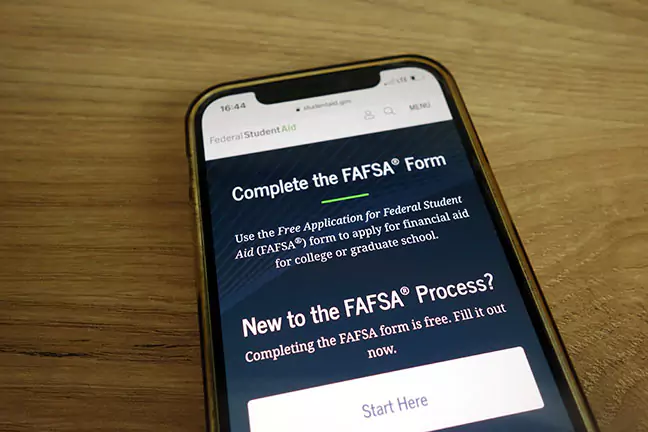Trade schools give individuals the opportunity to learn valuable skills to help them stand out in the workforce and bolster their careers. These schools could be a great option for those who want to enter a specific trade or those do not have the time or financial resources to attend a traditional four-year college.
However, like any form of education, trade school comes with costs. From tuition fees to materials, paying for your education will require you to plan ahead. Fortunately, there are various ways to pay for trade school and turn your career goals into a reality. Keep reading to learn about the resources and strategies available to you as you prepare to take this important step towards earning a great job.
How Much Does Trade School Cost?
The cost of attending trade school can vary significantly depending on various factors, such as the type of program, geographic location, and whether the school is public or private. Generally, trade school programs range from several weeks to two years in length, and tuition for can range from a few thousand to tens of thousands of dollars per year. Shorter programs, such as certification courses, may cost less than longer-term programs, like associate degree programs.
In addition to tuition, trade schools often charge smaller fees, including registration fees, technology fees, lab fees, and equipment fees. Students also typically need to purchase textbooks, tools, uniforms, and other supplies for their courses. As you consider which school you would like to attend, compare costs of attendance to get a sense of how much funds you will need to finance your education.

Does the FAFSA Cover Trade Schools?
The Free Application for Federal Student Aid (FAFSA) can help cover the cost of attending college or career school. After submitting the FAFSA to the Department of Education, students are given an expected family contribution (EFC) value. The government then uses this value to determine how much financial aid a student may receive.
It is important to remember that not all trade schools participate in the Federal Student Aid (FSA) program. Make sure you check your school’s website or reach out to their financial aid office to learn about whether they participate or not.
If a school you are interested in does not participate in the FSA program, that does not mean that aid is not available. Many schools offer their own scholarships and grants to students who can demonstrate financial need or meet other requirements.
Apply for Scholarships
Scholarships can significantly reduce tuition fees and expenses for students in trade school. By reducing financial barriers, scholarships make vocational training accessible to people who might not otherwise be able to afford it.
These scholarships help create a skilled labor force by fostering interest in various technical fields and trades. They may even provide opportunities for networking, internships, and job placements to assist with students’ transition into the workforce.
Many trade schools offer their own scholarships to eligible students, but you can also apply to scholarships offered by private organizations to increase your chances of receiving funds. The American Legion Auxiliary, for example, offers the Non-Traditional Student Scholarship to those entering vocational or trade school later in life.
Look Into Grants
Grants provide valuable financial assistance for trade school students by offering funds that do not need to be repaid. To access grants, students should research available options and complete the FAFSA if required.
Well-known federal grants include the Pell Grant and the Federal Supplemental Educational Opportunity Grant (FSEOG). The Pell Grant is a need-based grant that helps students in college or trade school cover the cost of their education. FSEOG grants are typically awarded to students who also receive the Pell Grant and who demonstrate the highest levels of financial need based on their FAFSA.
Grants may also be offered by state governments, private organizations, or a trade school itself. After identifying grants you qualify for, submit an application before the deadline and provide any necessary documents to the organization offering the grant.
If awarded a grant, students should use the funds to cover tuition, fees, books, supplies, and other educational expenses related to their trade school program. By receiving grants, students can ease the financial burden of going to trade school and reduce the need to take out loans.

Consider Taking Out Loans
When scholarships and grants are not enough to cover the cost of a trade school program, you may want to look into taking out a loan. Loans can provide access to a trade school education to those who do not have immediate financial resources, allowing them to continue pursuing their career path. Several types of loans are available for trade school students, including:
Federal Direct Subsidized Loans
These loans are based on financial need and offer subsidized interest while the student is in school at least half-time. This means that the government covers the interest applied to the loan while the student is enrolled, for a short grace period after they leave school, and during deferment periods. This greatly reduces the cost of borrowing for students with financial need.
Federal Direct Unsubsidized Loans
These loans are available to eligible students regardless of financial need. Unlike subsidized loans, you will have to pay the interest that builds up on these loans while you are in school, and there is no grace period for repayment after you wrap up your trade program. Generally, you should take advantage of available subsidized loans before turning to unsubsidized loans.
State Loans
Some states offer loans specifically for trade school students. These loans may have varying terms and eligibility criteria depending on the state’s program. To learn about grants available in your state, visit your state’s Department of Education or reach out to the financial aid office of the school you wish to attend.
PLUS Loans
Parent PLUS Loans are federal loans available to parents of dependent students. These loans can cover the remaining cost of attendance after other financial aid is applied. If your program is especially expensive, it may be worthwhile to discuss PLUS loans with your parents.
Private Student Loans
Private loans are offered by banks, credit unions, and other private lenders and can be used to cover educational costs. Private loans tend to have higher interest rates and less favorable terms than government loans, so make sure you review the terms of these loans carefully.
A popular provider of private student loans is Sallie Mae. To apply for a Sallie Mae student loan for trade school, visit their website or contact them directly to explore their loan options and decide which one is right for you.
Institutional Loans
Some trade schools may offer their own loan programs to help students cover educational expenses. These loans may have specific eligibility criteria and terms set by the institution.
Each type of loan has its own terms, interest rates, and repayment options, so it’s important to research and compare your options carefully before borrowing. Be realistic when it comes to judging whether you will be able to repay any loans you plan on taking out.

Work While Attending Trade School
Working while attending trade school gives you a steady income to help cover expenses such as tuition and living costs. The flexibility of many trade school schedules allows for students to work part-time or full-time when they are not in class or studying.
It may also be helpful to cut down on routine expenses, such as bills, to save up more money to put towards your education. EASY Wireless can help you do this by providing you with affordable phone service while you attend your trade school program. To find out if you qualify for an EASY Wireless phone plan, you can fill out an application on their website, or visit one of their retail locations to discuss your options with a representative.
With the right planning, going to trade school can pave the way for financial stability and professional success. By taking advantage of the resources and advice in this article, you can fund your trade school education and get closer to a successful, fulfilling career.


